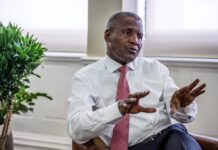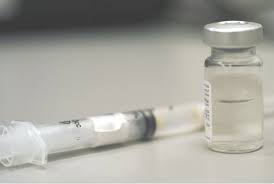Nine middle-income countries have agreed to work toward a pooled procurement mechanism for vaccines.
They will begin by sharing vital information on the prices they pay for vaccines and who supplies them.
Due to their middle-income status, the countries—Algeria, Botswana, Cabo Verde, Kingdom of Eswatini, Gabon, Mauritius, Namibia, São Tomé and Príncipe and Seychelles—are not eligible for immunisation financing support from Gavi, the Vaccine Alliance.
Their commitment on 1 November to improve in-country and cross-border processes was made following a three-day workshop organized by the World Health Organization (WHO) Regional Office for Africa in Mbabane, Kingdom of Eswatini to address access to safe and affordable vaccines in middle-income countries, where immunization coverage is decreasing.
“Pooling vaccine procurement is a major step towards increasing immunization coverage in these countries and the African Region as a whole,” said Dr Matshidiso Moeti, WHO Regional Director for Africa.
“We must work together to improve vaccine delivery so that all children are protected from preventable diseases. I am heartened to see such strong cooperation between countries to make universal immunization coverage a reality.”
Despite progress in reducing morbidity and mortality due to vaccine-preventable diseases, around 8.5 million children living in the WHO African Region still do not receive all the basic and necessary vaccines.
With many middle-income countries in the region transitioning from donor-supported to domestically funded immunization programmes, access to vaccines remains a challenge due to limited financial resources and to obstacles in accessing a timely and affordable vaccine supply.
A shift towards more strategic approaches to vaccine procurement is critical to improve access to affordable vaccines for middle-income countries in the African Region.
The nine countries agreed on activities to be conducted in common that will work towards a pooled procurement process in the future.
These activities include coordinating joint market research, sharing vaccine supplier information and monitoring vaccine prices.
By coordinating the informed buying of vaccines, these countries will have greater stability in their vaccine supply as well as increased bargaining power for lower prices.
On the final day of the recent workshop, the nine countries agreed on the next steps in the areas of advocacy, decision-making, regulation and information exchange.
- Create a dedicated web-based community platform for information exchange.
- Set up or leverage upcoming opportunities for regular information sharing and discussion on market information, national immunization technical advisory group discussions and decisions and on product registration information.
- Utilize the platforms of the African Union, the Regional Economic Communities and the Pan-African Parliamentarian Caucus on immunization for high-level political engagement to raise the profile of immunization.
- Through the WHO Regional Office for Africa, commit to engage with the African Vaccine Regulatory Forum and the African Medicines Regulatory Harmonization Initiative to ensure inclusion in the effort, beginning with simple devices, such as auto-disabled syringes.























